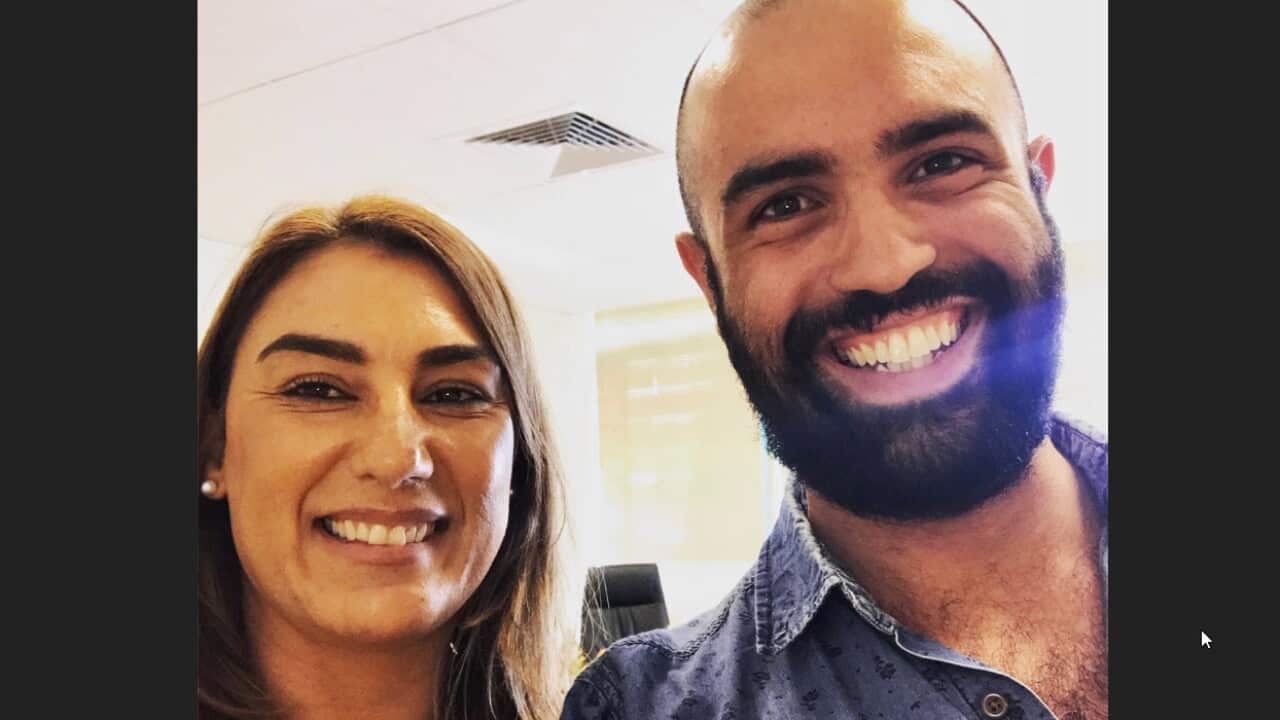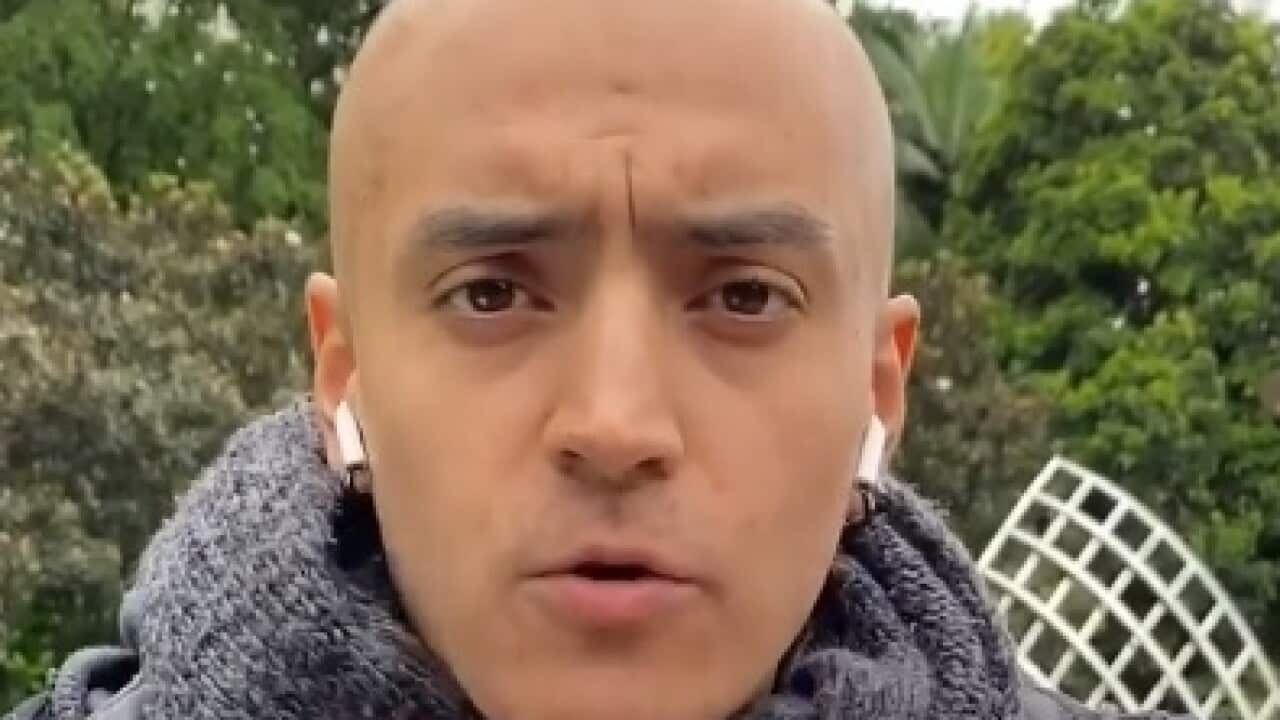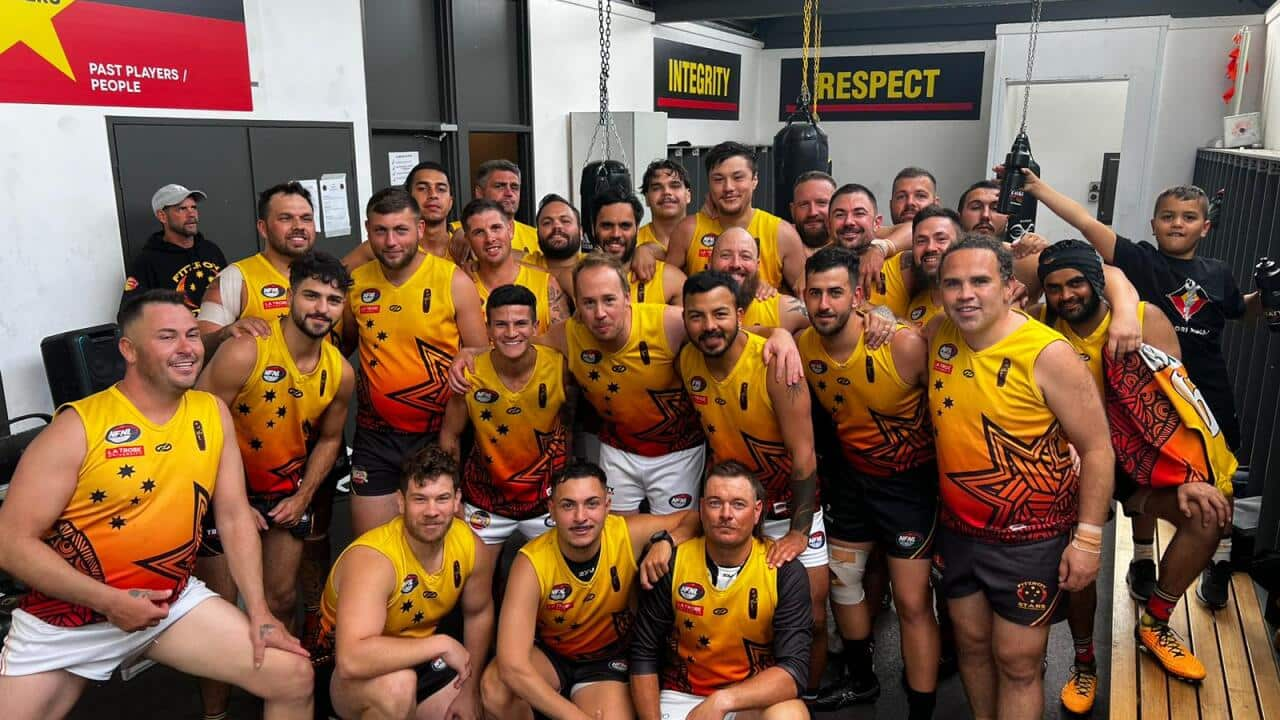‘Always was and always will be Aboriginal land’ is one of the primary phrases that opens the door to the foundations of the longest living culture on the planet.
More than a chant that echoes around the country at Indigenous rights protests, it is a phrase that encapsulates some of the deep notions of spirituality, tradition, Law, lore and the raison d'être that brings together Aboriginals and Torres Strait Islanders: their enduring and unbreakable connection to Country, dating back more than 60,000 years.
Senator Lidia Thorpe, a Gunnai-Gunditjmara woman who comes from a long matriarchal list of Indigenous women who have fought tirelessly for their rights, explains that, ironically, ‘always was, always will be’ is also a phrase that highlights the suffering of Indigenous peoples after the usurpation of their lands after colonisation.
Lidia is one of the most prominent public figures of the Thorpe family, renowned for their political activism. She currently serves as a Senator for the state of Victoria in the federal parliament for The Greens Party.

Newly sworn in Victorian Greens Senator Lidia Thorpe raises her fist as she enters the Senate Chamber. Source: Facebook
READ AND LISTEN TO THE PODCAST IN SPANISH HERE:

“Siempre será tierra Aborigen”: la frase protagonista de la protesta Indígena hace eco en un hispano en el Parlamento de Australia
Previously, she had been the first Indigenous woman in the Victorian Parliament, where she served as a member for the Northcote suburb of Melbourne, also for the Greens, between 2017 and 2018.
“I was born into politics. In this country, Aboriginal people are born to justify our existence, to fight for our own existence, and to protect our land and water, so I was born into a different kind of politics, and that's the politics of maintaining our cultural identity, our culture, our connection for future generations.”
Lidia says being Aboriginal in Australia means being “born fighting”, and that by definition this encompasses being labelled as ‘subversive’ by those who wish to maintain the neo-colonial status quo.
“I've always been outspoken and always defended the rights of our people, which ultimately, in the eyes of the colonisers, makes me a politician or an activist," she explains.
“Through my life experiences of working with my people and for my people and having a loudmouth or a voice that I'm able to connect with people, and teach people, I somehow ended up in the position that I'm in today.”

Lidia Thorpe at the Victorian parliament. Source: AAP
‘Always was, always will be’ is this year’s NAIDOC Week theme, which seeks not just to celebrate Indigenous Australians, but also to open spaces for dialogue and a greater understanding between Aboriginal and Torres Strait Islander Peoples and other Australians.
For Lidia, it is a phrase closely linked to her family roots.
“That phrase is something my uncle, Robbie Thorpe, actually came up with. So my first thought is, how proud I am of my uncle because that will never change. This has always been Aboriginal land and it will always be Aboriginal land,” she says.
“The colonisers have done so much damage over the last 240 years, but we are still connected to our Songlines, they are still there. Our spirit is in the land and we are one with our Country, so it always was and always will be Aboriginal land.
“It’s an important phrase for Aboriginal people across the country. We chant it at our rallies, and we mention it in speeches. We just make it part of our platform. We have to keep reminding people that this is still our country. We have never ceded our sovereignty,” Lidia adds. In addition to fighting for climate change action, another issue Lidia advocates for is the signing of a Treaty or agreement between the Australian government, the Crown and the Indigenous Peoples of Australia.
In addition to fighting for climate change action, another issue Lidia advocates for is the signing of a Treaty or agreement between the Australian government, the Crown and the Indigenous Peoples of Australia.

The new Greens senator for Victoria, Lidia Thorpe speaks to the media during a press conference in Melbourne. Source: AAP
Lidia believes that Australia should establish a truth-telling commission to shed light on the history of genocide and dispossession suffered by Indigenous people through colonisation.
“Australia is the only Commonwealth country in the world that doesn't have a treaty with its First People,” she explains.
“We've been the victim of mass genocide, mass incarceration, mass removal of children from their homes, and mass destruction of our land and water. We are treated as third-class citizens in our own country. We are the poorest, we are the sickest people in our own country and we are only three percent of this population.”
Lidia is not exaggerating.
According to data from the Australian Bureau of Statistics, while Aboriginal and Torres Strait Islander adults make up just over 3 per cent of the Australian population, they make up 27 per cent of the national prison population. An Aboriginal teenager is more likely to end up in jail than to complete tertiary education.
An Aboriginal teenager is more likely to end up in jail than to complete tertiary education.

Indigenous children are 11 times more likely to be in out-of-home care than non-Indigenous kids. Source: AAP
more likely to enter the government's foster care system than other children in Australia.
According to figures from the published in July this year, an Australian Indigenous person has a life expectancy of between eight and nine years younger than other Australians, which indicates they generally suffer from worse health.
These problems are frequently attributed to the high rates of poverty, family violence and the intergenerational trauma experienced in many Indigenous communities, especially by members of the Stolen Generations.
International observers and special rapporteurs from the United Nations and other human rights organisations have routinely slammed, for consecutive years, malpractice and inaction on the part of the Australian government in solving the serious problems of inequity that plague Indigenous Peoples.
Beyond the numbers, it is a historical inequality that overshadows the contribution that many Indigenous people make to society, as well as inhibits the path towards a true reconciliation and the promotion of a deep cultural exchange between Indigenous peoples and other communities in Australia.
We, the Indigenous Peoples of this country, have never negotiated an agreement to follow that can unite this nation, so that the oldest living culture in the world is valued, which is that of the Aboriginal People of Australia.
"A treaty is a way to achieve peace, a treaty will identify the challenges we face, but also eradicate the human rights injustices that Aboriginal people in this country continue to face on a daily basis."
Lidia's fiery political discourse has brought her enemies, but also many supporters.
Salvadoran-Australian lawyer, David Mejia Canales, is one of them.
David came to Australia in 1989 with his parents when he was five years old. The family was fleeing the civil war, and they were taken in by Australia as refugees.
He tells SBS Spanish that when he met Lidia, she left a great impression on him.
“She was the first Aboriginal woman MP in Victoria, and when she was sworn in, she arrived wearing her Aboriginal cloak, surrounded by her people, her tribe. For me that was a very astonishing thing, to see how she presented herself with great pride of being Aboriginal.
“As a Latin person living in Australia, I was struck by that sense of pride she had in herself, and that attracted me to work with her." David, a Northcote resident, says he looked up to Lidia as her representative in the Victorian Parliament, as she proved to be a strong person and consistent with her values.
David, a Northcote resident, says he looked up to Lidia as her representative in the Victorian Parliament, as she proved to be a strong person and consistent with her values.

David Mejia Canales working remotely with Greens Senator Lidia Thorpe. Source: Supplied
“When she became a Senator, I sent her a message and told her that I didn't care what I did in her office, that I didn't care if it was just sweeping, but that I wanted to work with her. I was very impressed by what she stood for and her demands for justice for her people.”
He now works with Lidia as her political advisor.
David says that his personal history as a refugee instilled him with a passion for justice, which is why he studied law at RMIT University in Melbourne.
Upon graduation, David worked at the National Aboriginal and Torres Strait Islander Association of Legal Services (NATSILS), which offers free legal help to Indigenous people.
We have a problem in Australia, that the legal system does not sufficiently protect Indigenous people. For example, a third of the people in prison in Australia are Indigenous, but the Indigenous people of Australia are only three percent of the population, so we have a big problem.
“Because of my training as a lawyer and also because of my values, it is important for me to contribute my talents in advancing justice for Aboriginal people. It's the most important thing we can do because that's where the gravest injustices happen here in Australia.
“We have not repaired our relations with the Indigenous Peoples of this country and that is why I am dedicated to working to repair all these injustices, but also so that we can all move forward together. For me, that is very important."

For salvadorean-australian lawyer David Mejia Canales, learning more about Indigenous Australia is a social reparation issue. Source: Supplied
The Uluru Declaration
In May 2017, delegates from Aboriginal and Torres Strait Islander communities met at the National Constitutional Assembly of First Nations near Uluru, and adopted the Uluru Statement from the Heart.
The declaration provides a roadmap for the recognition of First Nations in the Australian Constitution. To do this, it proposes a structural reform on three fronts: the establishment of an Indigenous Voice to Parliament enshrined in the Constitution, a Treaty or Makarrata, and a Truth Telling Commission.
The document was the result of a two-year deliberative consultation process, designed and led by 13 regional dialogues among First Nations members. The resolution was adopted by 250 Aboriginal and Torres Strait Islander delegates from across the country.
The Uluru Statement seeks to establish a relationship between the First Nations peoples and Australia based on truth, justice and self-determination, with the aim to move towards meaningful recognition and reconciliation, without giving up sovereignty, and going beyond mere symbolism.
These demands for Indigenous recognition in the Australian Constitution were supposed to be put up to vote in a referendum, but this has yet to happen.
Following the Uluru Convention, the Referendum Council handed down its report to the federal government. Shortly after, the then Australian Prime Minister Malcolm Turnbull and the then Minister for Indigenous Affairs, Nigel Scullion, rejected the idea of an Indigenous Voice to Parliament alleging that the proposal was unconstitutional, as it would represent a “third chamber” in Parliament, and that such a proposition wouldn’t be successful if it were put to vote.
The rejection occurred despite the fact that the federal government itself had funded the consultation process, and that a group of renowned constitutional jurists studied the proposal and concluded that it would be viable.
Currently, there are many differing ideas of how an agreement could be reached, but no solution has yet materialised.
For Lidia, the Uluru Statement is an important document, but she believes that the order of priorities should be different from the one proposed.
“I agree with the Statement in terms of its content, but what needs to happen from that statement is [a change in] the priority sequence. It's a great statement. However, we have to put the truth first and we have to put Treaty next.” Lidia believes that once people in Australia become aware of the atrocities committed against Aboriginal people, they would be more willing to support a treaty process.
Lidia believes that once people in Australia become aware of the atrocities committed against Aboriginal people, they would be more willing to support a treaty process.

NT to have 7 new centres to help parents in remote communities prepare their children for school (AAP) Source: AAP
“We need a truth-telling exercise in this country, where people can learn the true history of this country. Once they understand what is happening here, I think people would be more inclined to engage in a conversation about a Treaty. Constitutional recognition or a Voice in Parliament, or even seats in Parliament, can be negotiated through a Treaty.
“It's something we could get sooner rather than later, and we don't have to go to a referendum for it. Then, it will be much cheaper for the taxpayer and these are things that the legislation can enact immediately,” Lidia concludes.
For his part, David says he experienced a sobering moment once he learned about the realities of the treatment Indigenous Australians endure in their own country. This was a turning point for him, which later became a sense of purpose.
“I have always felt great love for this country because Australia took good care of us when we arrived. But when I realised how this country had treated its people, its First Peoples, the Indigenous people, it felt like a crisis, because as a refugee, I felt like… I had been welcomed here, but the people who have always been in this continent did not have the same treatment.
“So for me, working with Indigenous People is my way of contributing, not only to Australian society, but to help repair those relationships that need repairing between Australians, regardless of whether you were born here, or came here, and the people who have always been here.
“It is very important, and it has given me a sense of being, not only as an Australian because I feel Australian, but yes, as a Salvadoran too, because I came to this job with my Salvadoran way of being and my Latinoness.” For Lidia, it is important that all Australians and migrants get informed.
For Lidia, it is important that all Australians and migrants get informed.

Lidia Thorpe ascends the steps of Victorian Parliament in a hand-sewn possum-skin cloak. Source: AAP
“We've got generations and generations of people who have come through the colonial education system here in Australia, that have no idea what's happened. And that's why when an Aboriginal person speaks out, or speaks up, or runs for Parliament, the discrimination and the racism are so bad and so relentless because they just think we are beneath them.”
“We are considered the bottom rung of people in our own country, and I've heard people, I've heard migrant… Young migrant women actually said that to me, and cried to me, because that's what they thought when they came here. They had lived here for a couple of years. They just assume that's what we were.
“There is a lot of information out there. Many Aboriginal people are on social media, there are many original social media groups, but there are also places like Victoria University. There is an Aboriginal unit there and they have abundant information and resources.
“We need allies to help put that information out there.”
For his part, David recommends approaching Indigenous cultures on several fronts.
“The best thing we can all do is learn,” he emphasises.
“I believe that it is very important that we all have, all non-Indigenous people, that we learn about Indigenous cultures and languages, and understand why they are truly wonderful. Indigenous culture is the oldest culture in the world and that should give us a great pride.”
For David, the phrase ‘Always was, always will be’ is a reminder that, in Australia, there is still a long way to go on the road to true and meaningful reconciliation.
“It does not matter if we have come here to this country, or if we were born here, we are here, we are in Aboriginal land. Aboriginal people are still fighting for justice, for recognition, so I think it is a very nice reminder,” he says.
“I feel great affection, love, for this country, but I don't forget that we also have to repair our relationships with the people who have always been here, and that is very important to everyone.”








